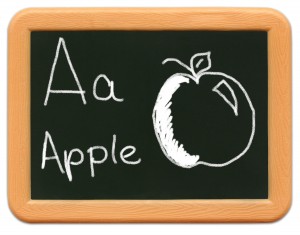Teaching Your Young Homeschooler How to Read
Saturday, October 29th, 2011 Once you’ve made the decision to take the plunge and homeschool your child, you have only begun to answer the myriad of questions out there concerning how and what you are going to teach. How soon do you officially start? How structured will the curriculum be? How much should you emphasize academics vs. fun activities? The list goes on.
Once you’ve made the decision to take the plunge and homeschool your child, you have only begun to answer the myriad of questions out there concerning how and what you are going to teach. How soon do you officially start? How structured will the curriculum be? How much should you emphasize academics vs. fun activities? The list goes on.
A good place to start is to find out what the state requirements are for children the same age as your child. Those requirements aren’t necessarily going to be ideal for your child, but they give you a basis to work from. There has been a trend in schooling to push academic subjects on children at a younger and younger age. I was shocked to read about “the rigors of kindergarten” in a preschool handwriting teacher’s guide. But it’s true. Today’s kindergarteners are expected to read and write complete sentences and to keep journals. Is your child ready for those kinds of “rigors?”
The question of whether or not your child is ready for a certain amount and level of work is more complicated than it might first appear. Many times the reasons a child won’t or can’t do the work has little to do with his intellectual capacity to do so. It may have to do with developmental or other obstacles that are part of the curriculum but not necessarily related to the subject matter.
Take, for example, the scenario of a girl who makes the kindergarten cutoff age by a month now sitting down to learn her phonics. You take her step by step through each sound and letter, a little bit at a time. Through your phonics program of choice you introduce to her the principles of word decoding and sentence structure. Does your child have the ability to grasp all that? The answer in general is yes, but it depends on how you present it. Phonics is by nature a highly intellectual and structured subject. The most obvious way to go about it is to sit down at the table and go through it step by step.
And that’s where you can have problems which might cause you to believe your child simply isn’t ready for phonics yet, and what were those lawmakers thinking anyway when they decided kindergarteners had to learn how to read? But is it really the phonics that is the problem? Many parents teaching a five-year-old how to read have found that they grasp everything you throw at them with amazing speed, but many times the focus isn’t there. They have everything but the attention span.
To continue reading this article, click here.






 Whether you’re new to homeschooling or just curious about it, the idea of teaching your children at home probably seems overwhelming. There are so many questions to be answered, decisions to be made, and new ideas to grasp. My advice is to relax — every homeschooling parent was once in your shoes and soon discovered that homeschooling is not as hard as it looks. If you can read a book, you can teach your child. You will soon see, homeschooling is a way of life and not a list of things to cover.
Whether you’re new to homeschooling or just curious about it, the idea of teaching your children at home probably seems overwhelming. There are so many questions to be answered, decisions to be made, and new ideas to grasp. My advice is to relax — every homeschooling parent was once in your shoes and soon discovered that homeschooling is not as hard as it looks. If you can read a book, you can teach your child. You will soon see, homeschooling is a way of life and not a list of things to cover. A common reason for moms to homeschool their children and work from home is that the at-home lifestyle appeals to them. It sounds like an ideal situation – you’re home, the kids are at home, and everyone’s happy.
A common reason for moms to homeschool their children and work from home is that the at-home lifestyle appeals to them. It sounds like an ideal situation – you’re home, the kids are at home, and everyone’s happy. You want to home school your teen but are unsure. The decision although a tough one, has been made you will need help. It is not as scary as it sounds. I will try to ease your fears. I have 2 teens that I have been schooling along with 3 younger children, so I am getting lots of practice.
You want to home school your teen but are unsure. The decision although a tough one, has been made you will need help. It is not as scary as it sounds. I will try to ease your fears. I have 2 teens that I have been schooling along with 3 younger children, so I am getting lots of practice.



